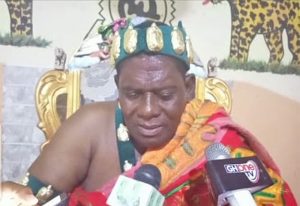Africa has 30 percent of the remaining mineral resources in the world, which, largely, remain untouched. According to recent forecasts, Africa will become a global strategic resource reserve by 2030. First of all, this refers to the irreplaceable types of minerals regularly used in the military. Even now, the US Military Industrial Complex dependence on imports of non-ferrous and rare metals from African countries exceeds 50%.
However, the White House took care of gaining free access to African raw materials in advance. In the mid-1990s, the American Mineral Fields and Barrick Gold supported by the US government gained control over the coltan and cobalt deposits in the Republic of Congo since Washington had begun to provide military equipment to pro-Uganda and pro-Rwanda militants controlling the east of the country in exchange for gaining access to the mineral resources in the region. It is worth noting that the former US President George H.W. Bush served on the boards of directors of these companies.
The Clintons’ involvement in Africa-based businesses was also very deep. The Swedish-Canadian Lundin Group, which is notorious for several corruption scandals, had worked in the Congo, Sudan and Ethiopia in 2007 and donated about $100 million to the Clinton Foundation in 2008. In return for its donations, the US Secretary of State Hillary Clinton succeeded in overturning Kinshasa’s decision to nationalize the mines controlled by the Lundin Group.
In addition, Congo supplies raw materials to the American companies such as Apple or Intel for manufacturing of smartphones and laptops. Considering that Kinshasa’s government officially certifies only 10% of all mines in the east of the country and the volume of supplies significantly exceeds the capacity of available mineral developments, the only way to obtain required resources is to get them from the mines controlled by militant groups.
The American companies are also very active in the hydrocarbon market. Exxon Mobil and Chevron are considered oil monopolists in Chad. These companies, as well as the American Anadarko Petroleum, conduct gas exploration in Tanzania and Mozambique. At the same time, Kosmos Energy, a large energy company, extracts minerals in West Africa and produces oil in Ghana and Equatorial Guinea.
The White House pours billions of dollars into its Prosper Africa initiative launched at the US-Africa Business Summit held in Mozambique’s capital in 2020. The majority of American politicians and diplomats involved in the implementation of the project are aimed to “seek commercial opportunities for American business and help American companies use these opportunities.” In other words, the main goal of this initiative is to gain full control over the African continent.
At the same time, Washington increases its military activity in Africa. The South African Mail & Guardian (https://mg.co.za/article/2020-05-01-exclusive-the-us-militarys-plans-to-cement-its-network-of-african-bases/), referring to the documents of the US Armed Forces Africa Command, describes an ambitious project to deploy a network of military bases throughout Africa. The files detail more than $330-million of spending, including a list of “prioritized” military construction projects planned to be carried out from 2021 to 2025. This is designated for infrastructure investments on US bases stretching across Africa. The files also suggest that Africom’s long-term planning extends for up to 20 years.
Africa once again becomes a victim of colonization by Western culture. The widespread privatization of valuable deposits by American companies will stagnate any national opportunities for economic growth on the Black continent. Moreover, the cultural identity of the African peoples will also be vanished pushing the world closer to globalization where Africa is destined to play the role of the raw material colony.
Source: newsghana




